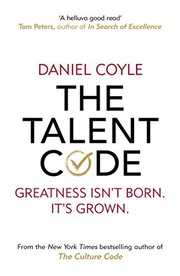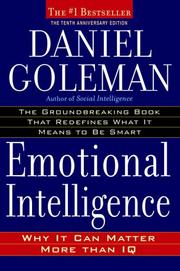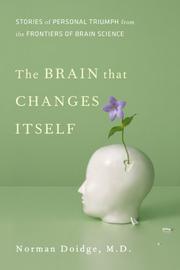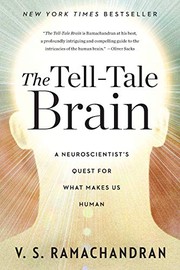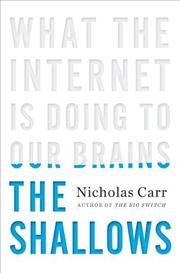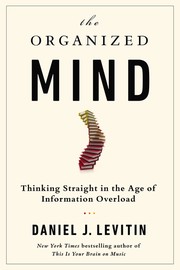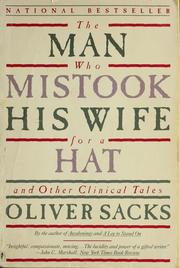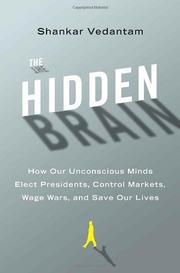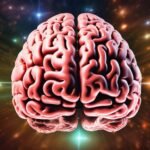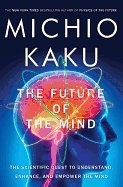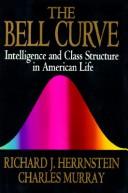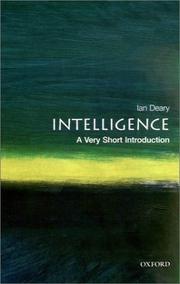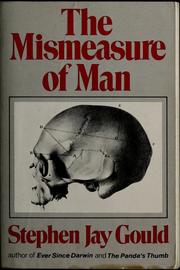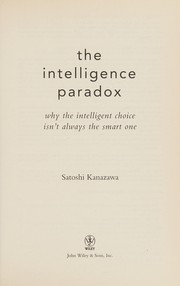Are you fascinated by the complexities of the human mind and its intelligence? Look no further than this curated list of the 20 best books on human intelligence. Delve into the depths of cognitive science, psychology, and neuroscience as these books explore the various facets of human intelligence. From discussions on emotional intelligence to the exploration of IQ and creativity, these books offer valuable insights into what makes us uniquely intelligent beings. Whether you’re a student of psychology or simply curious about the workings of the human mind, these human intelligence books are sure to captivate and enlighten you.
Contents
- 1 20 Best Human Intelligence Books
- 2 Thinking, Fast and Slow
- 3 The Talent Code
- 4 The Power of Habit
- 5 Emotional Intelligence
- 6 The Brain that Changes Itself
- 7 The Tell-Tale Brain
- 8 The Shallows: What the Internet Is Doing to Our Brains
- 9 The Organized Mind: Thinking Straight in the Age of Information Overload
- 10 The Man Who Mistook His Wife for a Hat
- 11 The Hidden Brain: How Our Unconscious Minds Elect Presidents, Control Markets, Wage Wars, and Save Our Lives
- 12 The Brain’s Way of Healing
- 13 The Future of the Mind: The Scientific Quest to Understand, Enhance, and Empower the Mind
- 14 The Neuroscientist Who Lost Her Mind: My Tale of Madness and Recovery
- 15 The Brain: The Story of You
- 16 The Tell-Tale Brain: Unlocking the Mystery of Human Nature
- 17 The Bell Curve: Intelligence and Class Structure in American Life
- 18 Intelligence: A Very Short Introduction
- 19 The Mismeasure of Man
- 20 Emotional Intelligence: Why It Can Matter More Than IQ
- 21 The Intelligence Paradox: Why the Intelligent Choice Isn’t Always the Smart One
- 22 Final Thoughts on Best Human Intelligence Books
- 23
20 Best Human Intelligence Books
Thinking, Fast and Slow
by Daniel Kahneman
Thinking, Fast and Slow by Daniel Kahneman is a captivating book about human intelligence that delves into the two systems that drive the way we think. Kahneman, a Nobel Prize-winning psychologist, introduces the concept of two systems: the fast, intuitive, and emotional System 1, and the slow, deliberate, and logical System 2. He expertly explores the biases and heuristics that both systems use, and how they can lead to errors in judgment and decision-making.
The book offers readers a fascinating insight into the inner workings of the human mind and how these two systems shape our perceptions and choices. Through engaging anecdotes and compelling research, Kahneman provides a thought-provoking look at the intricacies of human intelligence. Whether you’re interested in psychology, decision-making, or simply understanding the complexities of the human mind, this book about human intelligence is a must-read. Thinking, Fast and Slow challenges readers to reconsider their own thought processes and offers valuable insights into the ways we can improve our decision-making abilities.
The Talent Code
by Daniel Coyle
The Talent Code by Daniel Coyle is a captivating and insightful book on human intelligence. Coyle takes readers on a journey to explore the secret behind talent and skill development. Through engaging storytelling and scientific research, he reveals the concept of myelin, a substance in the brain that plays a crucial role in the development of expertise. Coyle delves into the idea of deep practice and how it cultivates talent, emphasizing the importance of focused and deliberate efforts in honing one’s skills.
The book takes readers on a global tour, examining talent hotbeds and uncovering the common patterns and practices that contribute to the exceptional abilities of individuals in various fields. Coyle’s exploration of the “ignition” factor, the initial spark that ignites passion and drives individuals to pursue excellence, adds depth to the discussion of human intelligence. The Talent Code offers valuable insights and practical strategies for anyone seeking to understand and enhance their own abilities, making it a must-read for anyone interested in the fascinating topic of talent development.
The Power of Habit
by Charles Duhigg
The Power of Habit by Charles Duhigg is a captivating exploration of the science behind our habits and how they shape our lives. Duhigg delves into the neurological processes that drive our behaviors, and how we can harness the power of habits to transform our lives. By examining real-life examples, from the success of Olympic athletes to the turnaround of struggling companies, Duhigg demonstrates the profound impact of habits on individual and organizational success. The book also delves into the psychology of habit formation and offers practical strategies for changing habits to achieve personal and professional growth. With its insightful analysis and compelling storytelling, The Power of Habit is a thought-provoking read that offers valuable insights into the workings of the mind and the potential for personal transformation. Whether you’re interested in self-improvement, psychology, or the complexities of human behavior, this book is a must-read for anyone seeking to understand the power of habits.
Emotional Intelligence
by Daniel Goleman
Emotional Intelligence by Daniel Goleman is a groundbreaking book on human intelligence that explores the power of understanding and managing emotions. Goleman argues that emotional intelligence is just as important, if not more so, than traditional intelligence when it comes to success and happiness in life. Through engaging storytelling and compelling scientific research, Goleman demonstrates how our ability to recognize and regulate emotions can impact our relationships, work performance, and overall well-being.
This book about human intelligence provides practical strategies for improving emotional intelligence, including tips for enhancing self-awareness, empathy, and social skills. Goleman’s insights into the role of emotions in decision-making and leadership have had a profound influence on psychology, business, and education. Emotional Intelligence is a must-read for anyone interested in understanding the complex and vital aspects of human intelligence and personal growth.
The Brain that Changes Itself
by Norman Doidge
The Brain that Changes Itself by Norman Doidge is a fascinating exploration of neuroplasticity, the brain’s remarkable ability to rewire and adapt itself. This groundbreaking book delves into the science of how the brain can change and reorganize itself throughout life, challenging long-held beliefs about the fixed nature of human intelligence. Doidge presents compelling real-life stories of individuals who have overcome various neurological challenges through the power of neuroplasticity, demonstrating the incredible potential of the human brain to heal and transform. From stroke victims learning to walk again to individuals overcoming learning disabilities, The Brain that Changes Itself sheds light on the remarkable resilience and adaptability of the human mind. Through engaging storytelling and compelling scientific research, Doidge provides a thought-provoking and inspiring exploration of the boundless potential of the human brain. This book is a must-read for anyone interested in the incredible capabilities of the brain and the endless possibilities for personal growth and development.
The Tell-Tale Brain
by V.S. Ramachandran
The Tell-Tale Brain by V.S. Ramachandran is a fascinating exploration of the intricate workings of the human mind. In this thought-provoking book on human intelligence, Ramachandran delves into the complexities of the brain, unraveling its mysteries and shedding light on the enigmatic nature of human consciousness. Through engaging anecdotes and compelling research, the author takes readers on a journey through the inner workings of the brain, discussing topics such as perception, synesthesia, and the relationship between the brain and the mind.
With his signature blend of scientific insight and captivating storytelling, Ramachandran presents a compelling case for the profound impact of the brain on human intelligence. He explores the ways in which the brain shapes our perceptions, emotions, and behaviors, offering a deeper understanding of what it means to be human. The Tell-Tale Brain is a must-read for anyone seeking to expand their knowledge of the intricacies of the human intelligence, and for those who are curious about the inner workings of the most complex organ in the human body.
The Shallows: What the Internet Is Doing to Our Brains
by Nicholas Carr
The Shallows: What the Internet Is Doing to Our Brains by Nicholas Carr is a thought-provoking book about the impact of the internet on our cognitive abilities. Carr explores the ways in which our constant use of digital technology is shaping the way we think, read, and remember. Drawing on research from neuroscience and psychology, he argues that the internet is not only changing the way we access information, but also fundamentally altering the way our brains process and retain knowledge.
This book on human intelligence raises important questions about the effects of our digital age on our ability to concentrate, think critically, and engage in deep, sustained reading. Carr’s writing is engaging and accessible, making complex scientific concepts approachable for all readers. Whether you’re a tech enthusiast or a skeptic, The Shallows offers a compelling analysis of the impact of the internet on human intelligence and is a must-read for anyone concerned about the future of our cognitive abilities in the digital age.
The Organized Mind: Thinking Straight in the Age of Information Overload
by Daniel J. Levitin
The Organized Mind: Thinking Straight in the Age of Information Overload by Daniel J. Levitin is a thought-provoking book on human intelligence that delves into the complexities of the human brain and how it processes information in today’s fast-paced world. Levitin, a neuroscientist and cognitive psychologist, explores the challenges of navigating the overwhelming amount of information that bombards us on a daily basis, and provides practical strategies for managing this cognitive overload.
Through a blend of scientific research, real-life examples, and practical advice, Levitin offers insights into how the brain organizes and prioritizes information, and how individuals can optimize their cognitive abilities to make better decisions and improve overall efficiency. The book about human intelligence covers a wide range of topics including memory, attention, multitasking, and decision-making, providing readers with valuable tools to enhance their mental clarity and productivity in the modern world.
Whether you’re a student, professional, or simply interested in understanding the complexities of human intelligence, this human intelligence book offers a compelling and informative exploration of the organized mind.
The Man Who Mistook His Wife for a Hat
by Oliver Sacks
The Man Who Mistook His Wife for a Hat by Oliver Sacks is a fascinating and eye-opening book about human intelligence. In this collection of clinical tales, Sacks, a renowned neurologist, provides a glimpse into the lives of individuals with neurological disorders, delving into the intricacies of the human mind and the ways in which it can be altered. Through his compelling storytelling, Sacks introduces readers to patients with a variety of conditions, from amnesia and aphasia to Tourette’s syndrome and autism. Each case study serves as a window into the complexities of the brain and the profound impact that neurological disorders can have on a person’s perception of the world. Sacks’s compassionate and insightful approach to his patients’ experiences allows readers to gain a deeper understanding of the resilience and adaptability of the human mind. The Man Who Mistook His Wife for a Hat is a thought-provoking and enlightening exploration of the intricacies of the human intelligence, offering a captivating journey into the inner workings of the brain.
The Hidden Brain: How Our Unconscious Minds Elect Presidents, Control Markets, Wage Wars, and Save Our Lives
by Shankar Vedantam
The Hidden Brain: How Our Unconscious Minds Elect Presidents, Control Markets, Wage Wars, and Save Our Lives by Shankar Vedantam is a captivating exploration of the hidden forces that shape our decisions and actions. This thought-provoking book delves into the fascinating world of the human mind, revealing the unconscious biases and influences that impact our everyday choices. Vedantam, a renowned science journalist, takes readers on a compelling journey through the complexities of the hidden brain, shedding light on its role in politics, economics, and even life-or-death situations.
Through a combination of real-life stories, cutting-edge research, and engaging insights, The Hidden Brain offers a profound understanding of how our unconscious minds play a pivotal role in electing leaders, driving economic trends, fueling conflicts, and guiding our survival instincts. This eye-opening book about human intelligence is a must-read for anyone interested in unraveling the mysteries of human behavior and decision-making. With its accessible writing style and compelling narrative, The Hidden Brain is a captivating exploration of the powerful forces at work within our unconscious minds.
The Brain’s Way of Healing
by Norman Doidge
The Brain’s Way of Healing by Norman Doidge is a groundbreaking book on human intelligence that explores the remarkable ability of the brain to heal itself. Doidge, a psychiatrist and researcher, delves into the world of neuroplasticity, showcasing the brain’s capacity to rewire and reorganize itself in response to injury or disease. Through captivating case studies and compelling scientific research, he reveals the potential for non-invasive techniques such as light therapy, sound therapy, and mind-body exercises to aid in the recovery from a range of neurological conditions, including stroke, traumatic brain injury, and chronic pain.
This book about human intelligence offers hope and inspiration to those grappling with neurological challenges, shedding light on innovative approaches that harness the brain’s natural healing abilities. Doidge’s accessible writing style and engaging storytelling make complex scientific concepts easily digestible, making it a must-read for anyone interested in unlocking the mysteries of human intelligence and the brain’s extraordinary capacity for healing.
The Future of the Mind: The Scientific Quest to Understand, Enhance, and Empower the Mind
by Michio Kaku
The Future of the Mind: The Scientific Quest to Understand, Enhance, and Empower the Mind by Michio Kaku is a fascinating exploration of the potential of the human brain. In this thought-provoking book on human intelligence, Kaku delves into the cutting-edge research and technology that is revolutionizing our understanding of the mind. He discusses the possibility of telepathy, mind control, and even uploading our consciousness into computers, painting a compelling picture of what the future of human intelligence could look like.
Through engaging storytelling and clear explanations of complex scientific concepts, Kaku takes readers on a journey through the inner workings of the brain and explores the potential for enhancing and empowering our minds. This book about human intelligence is a captivating blend of science and speculation, offering a glimpse into the incredible possibilities that lie ahead for our understanding of the human mind. Whether you’re a science enthusiast or simply curious about the potential of human intelligence, The Future of the Mind is sure to captivate and inspire.
The Neuroscientist Who Lost Her Mind: My Tale of Madness and Recovery
by Barbara K. Lipska
The Neuroscientist Who Lost Her Mind: My Tale of Madness and Recovery by Barbara K. Lipska is a gripping memoir that delves into the author’s harrowing experience with brain cancer. Lipska, a leading neuroscientist, details her descent into madness as the cancer spread to her brain, causing her to lose touch with reality and experience extreme cognitive and emotional disturbances. The book offers a raw and unflinching look at the fragility of the human mind and the complexities of mental illness.
As Lipska navigates her journey through diagnosis, treatment, and recovery, she provides a compelling account of her struggle to regain her cognitive abilities and emotional stability. Her story sheds light on the resilience of the human spirit and the remarkable capacity of the brain to heal and adapt. The Neuroscientist Who Lost Her Mind is a powerful exploration of the intricacies of the human mind and the remarkable resilience of the human spirit, making it a must-read for anyone interested in the complexities of the human intelligence.
The Brain: The Story of You
by David Eagleman
The Brain: The Story of You by David Eagleman is a captivating book about human intelligence that explores the complex inner workings of our most enigmatic organ. Eagleman, a renowned neuroscientist, takes readers on a fascinating journey through the book on human intelligence, unraveling the mysteries of the brain and shedding light on the incredible ways it shapes our perceptions, beliefs, and behaviors.
With his engaging storytelling and accessible language, Eagleman delves into the latest research in neuroscience, offering insights into the brain’s remarkable adaptability and resilience. He also explores the profound implications of understanding the brain’s functions, from the potential for groundbreaking medical advancements to the ethical questions surrounding consciousness and artificial intelligence.
Whether you’re a science enthusiast or simply curious about what makes us who we are, The Brain: The Story of You is a thought-provoking human intelligence book that will leave you with a deeper appreciation for the astonishing capabilities of the human mind.
The Tell-Tale Brain: Unlocking the Mystery of Human Nature
by V.S. Ramachandran
The Tell-Tale Brain: Unlocking the Mystery of Human Nature by V.S. Ramachandran is a fascinating exploration of the human brain and its intricate connection to human behavior. In this captivating book on human intelligence, Ramachandran delves into the complexities of the brain, offering insights into the way it shapes our perceptions, emotions, and actions. Through a series of compelling case studies and experiments, the author sheds light on the mysteries of the mind, revealing how the brain processes information and gives rise to our unique cognitive abilities.
With a blend of scientific expertise and engaging storytelling, The Tell-Tale Brain takes readers on a thought-provoking journey through the inner workings of the human intelligence book. Ramachandran’s accessible writing style and thought-provoking theories make this book about human intelligence a must-read for anyone curious about the complexities of the human brain and the nature of human behavior. Whether you’re a neuroscience enthusiast or simply intrigued by the mysteries of the mind, The Tell-Tale Brain offers a captivating exploration of human intelligence and the wonders of the brain.
The Bell Curve: Intelligence and Class Structure in American Life
by Richard J. Herrnstein, Charles Murray
The Bell Curve is a controversial book on human intelligence and class structure in American life, written by Richard J. Herrnstein and Charles Murray. The authors explore the relationship between intelligence and social outcomes, arguing that intelligence is a significant factor in determining an individual’s success in society. They discuss the implications of differences in cognitive ability for various aspects of life, such as education, employment, and social mobility.
The book sparked intense debate and criticism upon its release, as it delves into the sensitive topic of human intelligence and its impact on society. Herrnstein and Murray’s findings and conclusions were met with both acclaim and condemnation, making The Bell Curve a thought-provoking and polarizing read. Whether you agree or disagree with its arguments, this human intelligence book is a significant and influential work that has contributed to the ongoing discussion about intelligence and its role in shaping American society.
Intelligence: A Very Short Introduction
by Ian J. Deary
Intelligence: A Very Short Introduction by Ian J. Deary is a concise and thought-provoking book on human intelligence. Deary takes readers on a journey through the fascinating and complex world of intelligence, exploring the history, measurement, and neuroscience of this enigmatic trait. Through engaging prose and insightful analysis, Deary provides a comprehensive overview of the current state of knowledge about human intelligence, delving into topics such as IQ testing, the nature-nurture debate, and the impact of intelligence on our lives. This book about human intelligence is a perfect introduction for anyone seeking to understand the concept of intelligence, its measurement, and its implications for society. Whether you’re a student of psychology, a curious reader, or simply someone interested in the workings of the human mind, Intelligence: A Very Short Introduction offers a compelling and accessible exploration of this endlessly intriguing subject.
The Mismeasure of Man
by Stephen Jay Gould
The Mismeasure of Man by Stephen Jay Gould is a thought-provoking book on human intelligence that challenges the assumptions and methods used in measuring intelligence. Gould delves into the history of intelligence testing and argues that these tests are not only flawed but also have been used to justify discrimination and inequality. He highlights the dangers of equating intelligence with inherent worth and demonstrates how the concept of intelligence has been misused to perpetuate social injustices.
Gould’s engaging and accessible writing style makes this book about human intelligence a compelling and important read for anyone interested in understanding the complexities of human cognition and the impact of intelligence testing on society. He offers a critical perspective on the history and social implications of the measurement of human intelligence, making a compelling case for reevaluating our understanding of intelligence and its role in shaping our perceptions of human potential.
Emotional Intelligence: Why It Can Matter More Than IQ
by Daniel Goleman
Emotional Intelligence: Why It Can Matter More Than IQ by Daniel Goleman is a groundbreaking book on human intelligence that challenges the traditional notion that IQ is the sole predictor of success. Goleman argues that emotional intelligence, the ability to understand and manage emotions, is equally if not more important in determining one’s overall well-being and success in life. Through engaging storytelling and compelling research, the book delves into the impact of emotional intelligence on personal relationships, professional success, and mental health.
Goleman presents a compelling case for the importance of emotional intelligence, highlighting its role in effective leadership, decision-making, and resilience. He also offers practical strategies for improving emotional intelligence, making this book about human intelligence a valuable resource for personal growth and development. Whether you’re a professional seeking to enhance your leadership skills or an individual striving for greater self-awareness, Emotional Intelligence is an insightful and enlightening exploration of the power of emotions in shaping our lives.
The Intelligence Paradox: Why the Intelligent Choice Isn’t Always the Smart One
by Satoshi Kanazawa
The Intelligence Paradox: Why the Intelligent Choice Isn’t Always the Smart One is a thought-provoking book on human intelligence by Satoshi Kanazawa. In this insightful work, Kanazawa explores the complex and often surprising ways in which human intelligence can shape our decisions and behaviors. Through engaging and accessible prose, he challenges conventional wisdom and offers a fresh perspective on the relationship between intelligence and success.
By delving into topics such as evolution, psychology, and sociology, Kanazawa sheds light on the paradoxical nature of human intelligence, demonstrating how highly intelligent individuals can sometimes make choices that seem contrary to their intellectual abilities. With a blend of scientific research and real-world examples, The Intelligence Paradox invites readers to reconsider their assumptions about intelligence and its impact on our lives. Whether you’re a psychology enthusiast or simply curious about the workings of the human mind, this book about human intelligence is sure to captivate and stimulate your intellect.
Final Thoughts on Best Human Intelligence Books
In conclusion, the 20 best books about Human Intelligence offer a fascinating exploration of the complexities of the human mind. From discussions on the nature of intelligence to insights into cognitive processes, these books provide valuable perspectives on what it means to be intelligent. Whether you’re interested in psychology, neuroscience, or simply want to gain a deeper understanding of human intelligence, these books are essential reads for anyone curious about the inner workings of the brain.
Which book about Human Intelligence is best?
The best book on Human Intelligence can vary with personal preference, but three widely recommended titles are:
- Thinking, Fast and Slow by Daniel Kahneman,
- The Talent Code by Daniel Coyle,
- The Power of Habit by Charles Duhigg.
Each offers valuable insights and could be a great starting point.
What are the best books to learn about Human Intelligence?
For those looking to learn about Human Intelligence, there is a wealth of literature that can provide a comprehensive understanding of the subject. Some of the most highly recommended books include:
- Thinking, Fast and Slow by Daniel Kahneman,
- The Talent Code by Daniel Coyle,
- The Power of Habit by Charles Duhigg,
- Emotional Intelligence by Daniel Goleman,
- The Brain that Changes Itself by Norman Doidge,
- The Tell-Tale Brain by V.S. Ramachandran,
- The Shallows: What the Internet Is Doing to Our Brains by Nicholas Carr,
- The Organized Mind: Thinking Straight in the Age of Information Overload by Daniel J. Levitin,
- The Man Who Mistook His Wife for a Hat by Oliver Sacks,
- The Hidden Brain: How Our Unconscious Minds Elect Presidents, Control Markets, Wage Wars, and Save Our Lives by Shankar Vedantam
These books offer a range of perspectives on Human Intelligence, covering various aspects and approaches to the subject.
What are the best books about Human Intelligence?
The best books about Human Intelligence are:
- Thinking, Fast and Slow by Daniel Kahneman,
- The Talent Code by Daniel Coyle,
- The Brain’s Way of Healing by Norman Doidge,
- The Future of the Mind: The Scientific Quest to Understand, Enhance, and Empower the Mind by Michio Kaku,
- The Organized Mind: Thinking Straight in the Age of Information Overload by Daniel J. Levitin,
- The Tell-Tale Brain by V.S. Ramachandran.
Each offers unique insights into the subject. While these books about Human Intelligence are highly regarded, it’s important to note that any list of ‘best’ books is subjective and reflects a range of opinions.
What are the best Human Intelligence books of all time?
Choosing the best Human Intelligence books of all time can vary depending on who you ask, but five titles that are often celebrated include
- Thinking, Fast and Slow by Daniel Kahneman,
- The Talent Code by Daniel Coyle,
- The Brain that Changes Itself by Norman Doidge,
- The Organized Mind: Thinking Straight in the Age of Information Overload by Daniel J. Levitin,
- and The Brain’s Way of Healing by Norman Doidge.
Each of these books has made a significant impact in the field of Human Intelligence and continues to be influential today.


